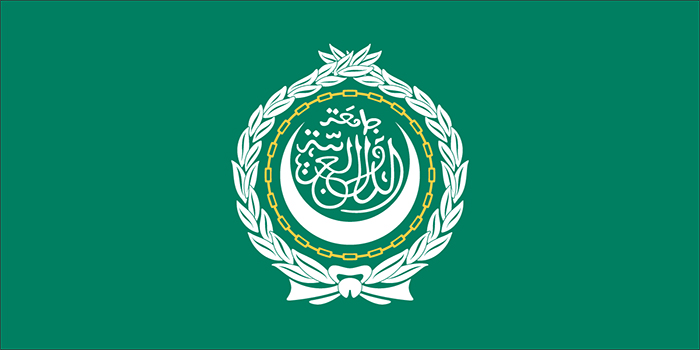Arab League is an organization of 22 Middle Eastern and African countries where Arabic is the main spoken language. Its official name is the League of Arab States. The league regards Palestine, represented by the Palestinian Authority, as a country. The Pact of the League of Arab States states that the organization promotes improved political, economic, cultural, and social relations among its members.

A council of representatives from the member states works to settle disputes peacefully. It can also decide how to repel aggression against a member. League activities are carried out by a number of committees, including committees on economic, legal, Palestinian, political, and social and cultural affairs.
The league’s charter was signed in 1945 by seven countries—Egypt, Iraq, Lebanon, Saudi Arabia, Syria, Transjordan (now Jordan), and Yemen (Sanaa). Since then, 16 other members have joined—Libya (1953), Sudan (1956), Morocco (1958), Tunisia (1958), Kuwait (1961), Algeria (1962), Yemen (Aden, 1967), Bahrain (1971), Oman (1971), Qatar (1971), United Arab Emirates (1971), Mauritania (1973), Somalia (1974), Palestine (1976), Djibouti (1977), and Comoros (1993). In 1990, Yemen (Aden) and Yemen (Sanaa) united as Yemen.
The Arab League has had difficulty living up to the aspirations of its founders. Political differences, suspicions, and rivalries have made the league’s political and defense agreements largely ineffective. However, the league has achieved some success in expressing the rights of Palestinians. In 1974, it helped Palestinians attain observer status at the United Nations (UN). Observers have the right to speak at UN meetings but not to vote on resolutions.
The Arab League’s greatest accomplishments have probably been those in the social, cultural, and communications fields. The formation in 1976 of ARABSAT, an Arab communications satellite system, helped foster cooperation among Arab countries. The league has also worked to preserve Arabic language and heritage and to modernize school courses.
The Arab League has often reflected rather than settled disputes among its members. In 1979, Egypt signed a peace treaty with Israel. Because Arab countries at that time had no diplomatic relations with Israel, the league suspended Egypt’s membership. It also transferred its headquarters from Cairo, Egypt, to Tunis, Tunisia. The league readmitted Egypt in 1989 and returned its headquarters to Cairo in 1990. In 1994, Jordan signed a treaty with Israel but was not punished by the league.
After Iraq invaded Kuwait in 1990, most league members approved of the use of military force to expel Iraq from Kuwait. But in 2003, only Kuwait supported a United States-led war against Iraq. Some other members, including Bahrain and Qatar, allowed their territory to be used for planning and staging the war effort.
In 2002, the Arab League approved a peace plan, sponsored by Saudi Arabia, between its members and Israel. However, Israel did not agree with many of the plan’s terms. In 2005 and 2007, the league revived the plan, but Israel has not yet accepted it.
See also Arabs.
